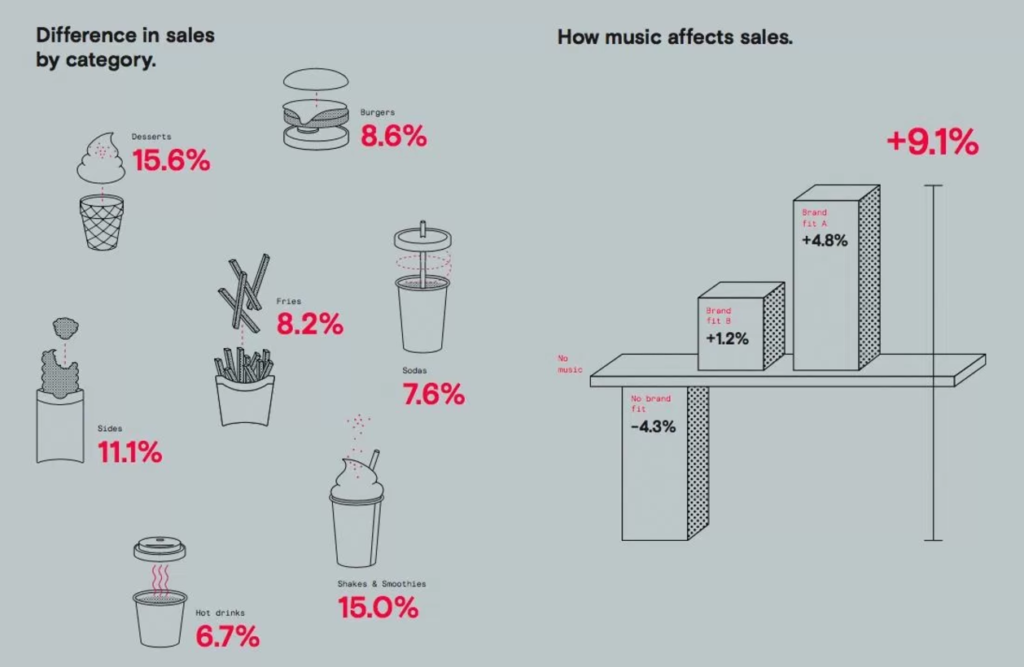Spotify-backed service Soundtrack Your Brand has customers buying more food that usual

The impact of music in restaurants has been demonstrated in a recent study and Stockholm-based, Spotify-backed service Soundtrack Your Brand is helping businesses cash in.
Restaurant chains across 100 countries are signing up to Soundtrack Your Brand, a background music service that encourages customers to subconsciously purchase 9.1% more food and drinks.

According to the company’s field study with HUI Research, restaurants are better off playing no music than a rag-bag of Top 40 tracks.
The study tested four music approaches:
– Songs which complemented the restaurant’s brand; i.e a mix of songs from Spotify’s Top 1,000 tracks as well as lesser-known songs
– Only picks from Spotify’s most popular songs, but still in line with the restaurant’s brand
– A random selection
– No music at all
The study also found that mainstream hits can hurt sales but “on-brand” songs can drive sales, especially dessert sales, as customers hang around longer than they intended to.
The Impact of Music in Restaurants report reviewed 2,101 customer surveys and studied 1.8 million unique transactions at 16 locations of an unnamed major global food chain.
However, Soundtrack Your Brand counts McDonald’s, TAG Heuer and Toni & Guy among its multinational customers – so if we could take a wild guess at which restaurant chain the report was based on, we’d say they serve Big Macs.
Interestingly, Soundtrack Your Brand was founded by Ola Sars, an ex-Spotify executive and one of the co-founders of Apple-owned Beats.
It should be noted here that while Soundtrack Your Brand gives restaurants and businesses use of Spotify For Business (because Spotify’s T&C’s prevent you from using your personal account in a business setting) businesses still require a licence to play music.
In Australia and New Zealand, that means that whether a business plays music from a CD player, a radio, a TV, or an online streaming service, they’ll need a licence from APRA AMCOS and PPCA.
This article originally appeared on The Industry Observer, which is now part of The Music Network.






























